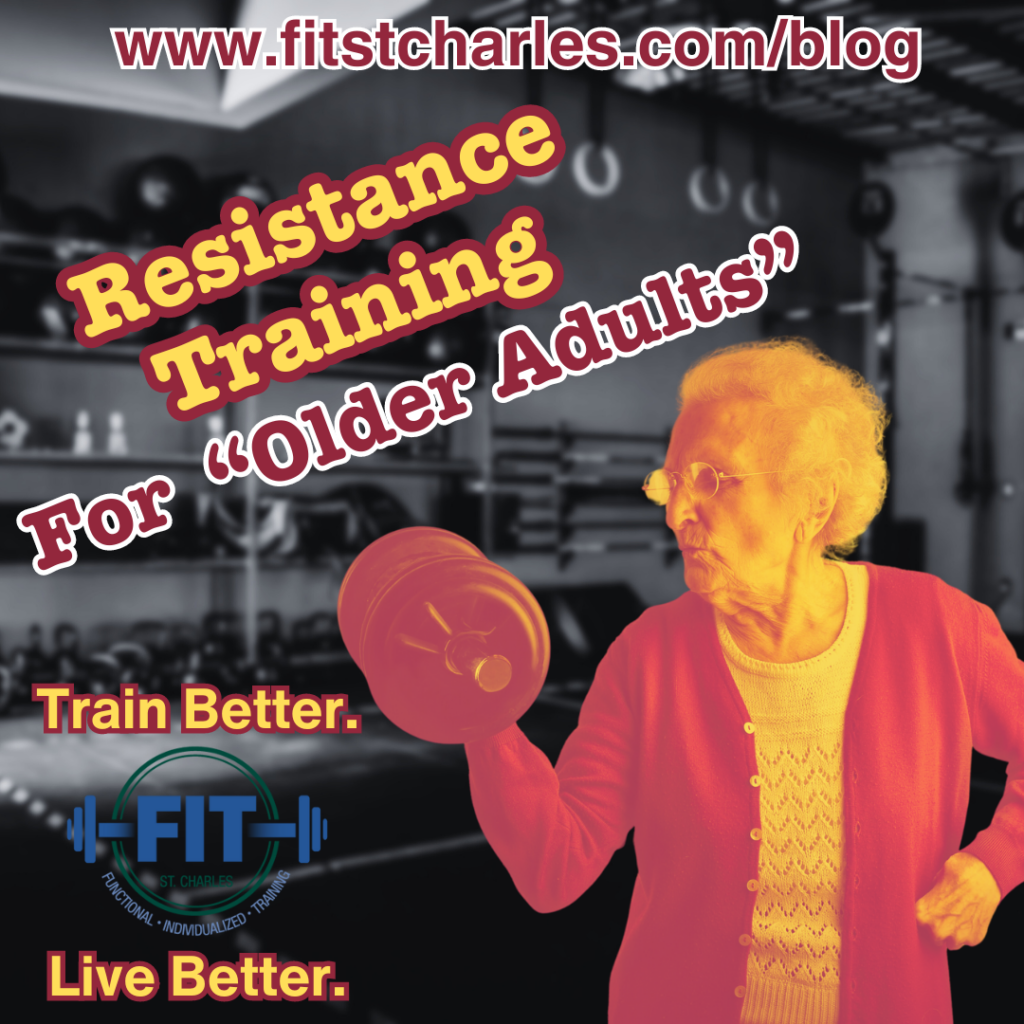
Mobility issues are a concern for many people as they age. In fact, about 30% of people over 70 years old have problems standing up, walking, and using stairs. The risk of injury from performing daily tasks increases also. This leads to higher rates of nursing home admissions, falls, and chronic disease. The biggest culprit for this decline in mobility and risk of injury? Loss of muscle mass.
Typically, humans naturally gain the most muscle mass throughout their teens and 20s. For most people, muscle mass reaches its peak around their 30’s. After that, it declines slowly at first, but muscle mass rapidly declines once we are a little older (65 for women and 70 for men). While there is no way to stop the clock completely, there is a lot you can do to slow the decline of muscle mass (and gain some back!). The answer? Resistance training!
What is resistance training? Well, it includes weightlifting (free weights, machines), using resistance bands, and using your own body weight to create resistance. Take your pick- exercise using resistance bands, cycle, do pushups, use free weights, do planks, whatever appeals to you! Remember that resistance training means your muscles will contract to lift a heavy object against gravity. The heavier the object, the more resistance.
Creating a personalized plan that considers your current mobility, any physical limitations you might have, any injuries you are currently struggling with, and what your goals are is especially important if you begin resistance training as an older adult. Of course, this is recommended for everyone to reduce the risk of injury and be on track for progression, but if you are older and have limited mobility, injury, or physical limitations, it is best to speak with someone who can help you decide the best way to begin resistance training and work your way up from there.
Although consistent resistance training can help with chronic pain associated with arthritis, for example (check out our blog on exercise and arthritis here- https://fitstcharles.com/can-exercise-be-a-safe-and-effective-way-to-help-with-arthritis-pain/), depending on your level of pain and mobility, you may have to modify specific movements (as you progress in your training, you might no longer have to modify those movements, but it is important to know your own limitations). The internet will not always have the answers for you, especially if you have chronic pain, mobility problems, injury, or other physical limitations that complicate how you should exercise. Even if you are not experiencing any of these, as we age, we are more prone to injury in general, especially if you have not trained before. You (and everyone else) will benefit from having someone watch and correct your form, give you exercises that are safe for you, and provide you with the encouragement you need to succeed!
We would also like to note that depression can be a major problem for older adults as well. The loss of independence that some older adults experience is, of course, going to affect your mental health. In addition, conditions that cause chronic pain have the potential to severely negatively impact your mental health. Fortunately, exercise in any form lessens the symptoms of depression, anxiety, Alzheimer’s, and other mental conditions that have the potential to increase in severity as we age. Plus, exercise increases your confidence, releases dopamine and endorphins, and helps delay the onset of certain mental disorders associated with age, so regardless of your current mental state, exercise is beneficial!
Resistance training helps you preserve your quality of life and independence as you age, so over course, you have a leg up if you start earlier in life. However, if you are considered an “older adult” and have never done resistance training, it’s not too late to start! It’s never too late to start something that is good for your body, mind, and soul! If you want to learn more about what is right for you, please come in! We have a free intro course that can give you an idea of what your workout plan would look like and what you could expect as you progress, and of course, we would love to meet you!
